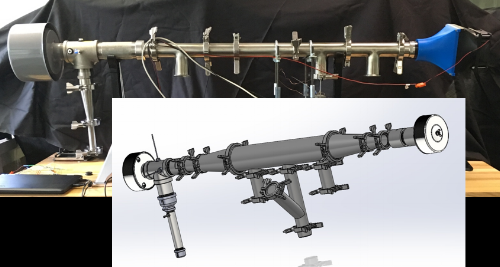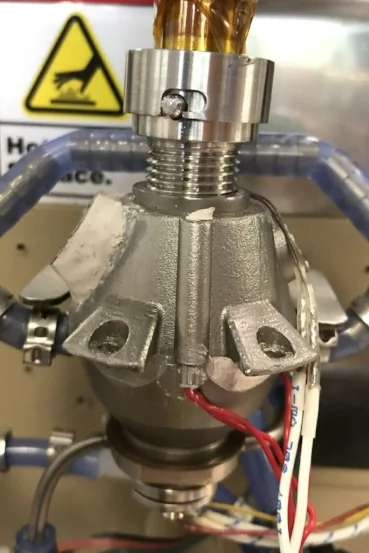Overview
Filling the gap between development and full scale production, DAS takes ownership of technology transfer to commercial and government users. Recent projects highlight the diversity of programs we support.
Working closely with our commercial and government customers, DAS leverages in house expertise to assess and improve systems enabling operation in the intended role and environment. A couple of our more recent activities are listed below as examples.
FAST RESPONSE AEROSOL CHAMBER
The Fast Response Aerosol Chamber provides a gold standard method for assessing aerosol detection sensors, providing real-time in-situ measurements of the dose presented to the device under test. Iso-kinetic sampling, dynamic feedback of aerosol generation, and dynamic flow through the chamber adjust the aerosol concentration to keep it stable for long periods or change it according to programmable profiles for short duration pulses. The chamber is reconfigurable and customizable to fit your flow and space requirements. Stand alone, or combined with other referee instrumentation, the DAS Fast Response Aerosol Chamber provides a cost effective solution to meet all your dynamic testing needs.
SOlar REFRIGERATION
With the ongoing wars in Iraq and Afghanistan and the resulting increased exposure to Improvised Explosive Devices, the DoD looks for solutions to reduce energy consumption for the warfighter. With this customer in mind, DAS developed a solar refrigeration system capable of eliminating the round trip energy costs of typical panel-to-battery-to-device configurations. Applying advanced energy monitoring and controls coupled to efficient energy harvesting technologies, DAS has produced a solar refrigeration system capable of up to 50% energy savings over conventional integrated systems. Implementing this technology with traditional power sources (i.e. JP-8 Generator) affords even more energy savings, greatly reducing the logistical burden for remote posts.
Aerosol-to-Vapor Module
Working in collaboration with one of our partners, DAS performed an independent assessment on the collection and analysis method of an advanced chemical detection system. Assessing subsystem performance against mission requirements identified deficiencies in integrated system performance. DAS designed, prototyped and integrated a novel aerosol collection and control system. The design and integration effort optimized collection and concentration of material, providing significant flexibility allowing multiple modes of operation. Implementing advanced aerosol collection technology, continuous concentration, and automated vapor generation techniques in a small package enabled a lightweight integrated package for soldier use. With a rapid spiral development, DAS was able to reduce the Size Weight and Power of the collection system while increasing the net material for detection by 2 orders of magnitude.



